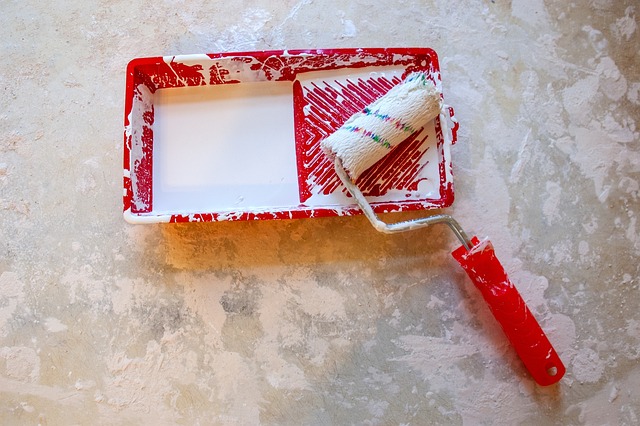This text offers a strategic approach to managing home renovation costs. It highlights the dynamic nature of expenses, influenced by project scale, location, and materials. Effective budgeting involves researching renovation pricing guides and using online cost estimators for personalized figures. Key expense categories include labor, materials, permits, and contingencies. Balancing affordability and quality ensures successful renovation budget planning, guiding homeowners to make informed decisions without financial strain.
Balancing quality and cost in home improvement projects is an art that every homeowner strives for. This comprehensive guide, “Balancing Quality and Cost in Home Improvement Projects,” equips you with the tools to navigate the intricate world of renovation budgets. From understanding intricate home renovation costs to decoding remodeling expenses and utilizing effective cost estimators, this article offers a detailed renovation pricing guide. Learn how to plan a realistic budget, break down upgrade expenses, and make informed decisions for your next home improvement endeavor, ensuring both quality and affordability.
Understanding Home Renovation Costs: A Comprehensive Overview
Understanding Home Renovation Costs involves a comprehensive overview of various factors that influence spending. The cost of home improvements can range widely based on project scope, location, and material choices. Before diving into any renovation, meticulous budgeting is essential. Researching renovation pricing guides and using online tools like cost estimators help in gauging the financial commitment required.
A clear breakdown of remodeling expenses includes labor costs, materials, permits, and unexpected contingencies. Planning a renovation budget should consider both affordable options to enhance living spaces and ensuring that quality isn’t compromised. Balancing these aspects effectively allows homeowners to transform their properties without overextending their finances.
Creating a Realistic Renovation Budget Plan
Creating a realistic renovation budget plan is a crucial step in any home improvement project. Start by researching and understanding the average costs associated with your desired upgrades. Utilize online resources, such as renovation pricing guides, to get a grasp on the typical range for specific projects. This initial research will serve as a foundation for your budgeting efforts.
Next, break down the potential remodeling expenses into manageable components. Consider factors like labor rates, material costs, and any unforeseen project complications that may impact your budget. Accurately estimate each component to ensure you have a comprehensive understanding of the financial commitment involved. Online tools, such as renovation cost estimators, can assist in this process by providing personalized figures based on your region, project scope, and chosen materials.
Decoding Remodeling Expenses: What Impacts Pricing?
Decoding Remodeling Expenses: Unraveling the Factors Behind Pricing
When diving into home renovation projects, understanding the breakdown of remodeling expenses is crucial for budget planning. The cost of home improvements can vary widely depending on several key factors. These include the scope and size of the project, material choices, labor rates, location, and current market trends. For instance, a simple kitchen upgrade may range from a few thousand dollars for basic replacements to tens of thousands if incorporating high-end finishes and custom designs. Similarly, bathroom remodels can span a wide spectrum based on whether you’re replacing fixtures, tiling, or completely gutting and rebuilding.
Creating an accurate renovation budget involves utilizing reliable renovation cost estimators and consulting professionals who can provide a comprehensive remodeling expenses guide tailored to your specific needs. This process ensures that you allocate funds wisely, striking the right balance between achieving your desired upgrades and staying within financial limits. By identifying cost drivers and exploring affordable home renovation options, homeowners can transform their spaces without compromising quality or overspending.
Tools for Estimating and Managing Home Improvement Costs Effectively
Effective home renovation costs management starts with meticulous planning and the right tools for estimating. A comprehensive renovation budget planning involves detailed lists of project requirements, research on the cost of home improvements, and utilizing reliable renovation pricing guides to forecast expenses accurately. Online remodeling cost breakdowns and cost estimators can be valuable resources, offering insights into typical remodeling expenses based on project type and size.
For affordable home renovation, prioritize tasks that will yield significant aesthetic or functional upgrades. Focus on both visible and hidden aspects of the project. For instance, while quality materials may carry a higher upfront cost for home upgrade expenses, they can prevent long-term repairs, thereby saving money in the long run. A well-planned renovation budget should allocate funds thoughtfully, balancing quality with cost to create a space that meets both style and financial goals.
Balancing quality and cost in home improvement projects is an art that involves thoughtful planning and strategic decision-making. By understanding the comprehensive overview of home renovation costs, creating a realistic budget plan, and decoding the factors influencing remodeling expenses, you can effectively manage your project’s financial aspects. Utilize tools like renovation cost estimators to predict expenses accurately and make informed choices. Remember, achieving an affordable home renovation is possible without compromising quality; it’s all about prioritizing, negotiating, and selecting the right materials and contractors. With a well-informed approach, you can transform your space while staying within your budget.
